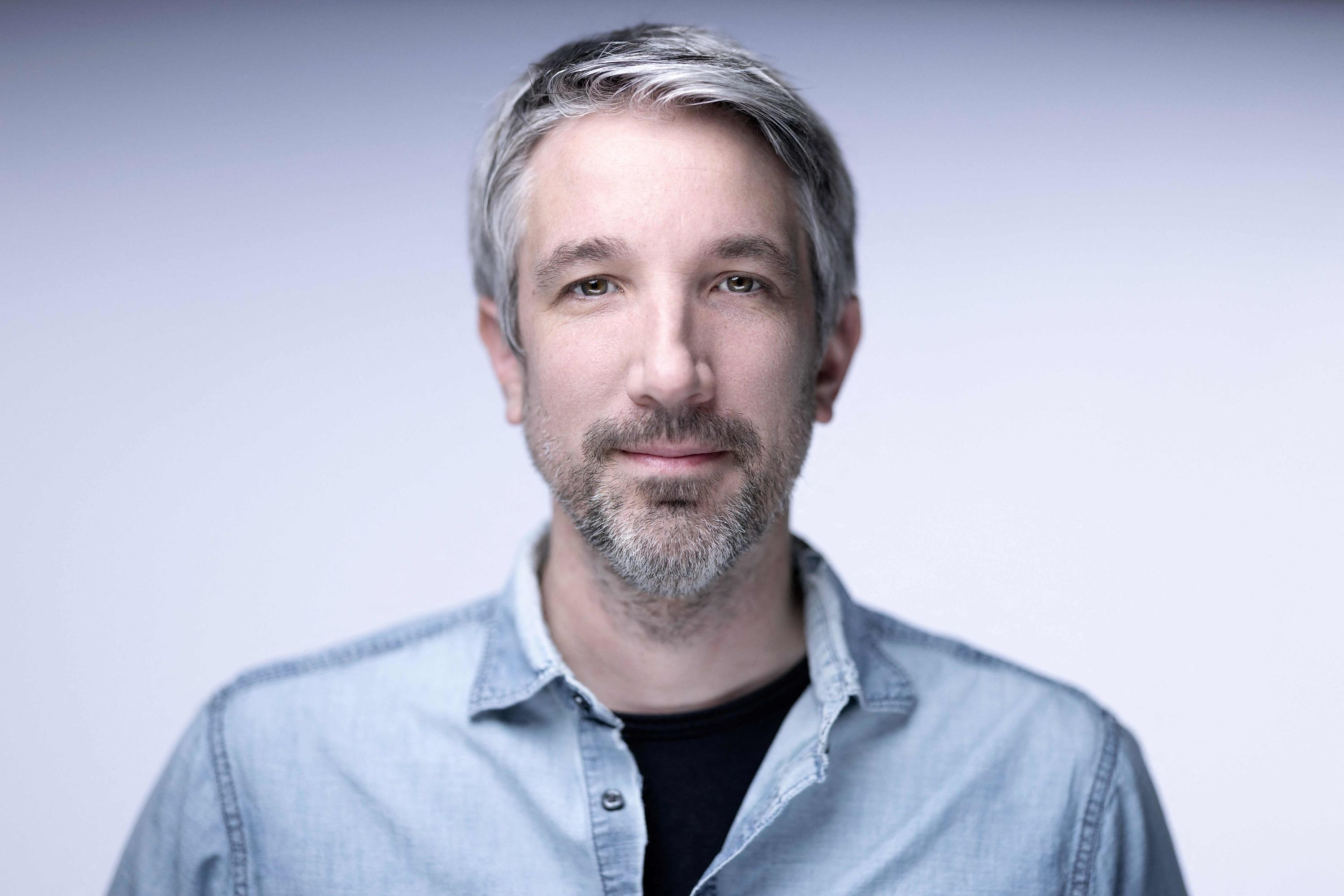Hamburg's environment senator Jens Kerstan (Greens) is known for pithy statements. When the 56-year-old says that the Senate will set "new standards" with the amended Climate Protection Act, no one flinches at first. But when the Greens politician announces, as happened on Tuesday after the Senate session in City Hall, that the amendment to the law will lead to additional burdens for the people of Hamburg, that is a reason to sit up and take notice.
With its new law, the Senate not only wants to give legal status to the already agreed goal of reducing at least 70 percent of CO₂ emissions by 2030. He also plans to tighten the solar roof obligation that has been in force since the beginning of this year and to introduce a new obligation to green roofs.
From 2027, all roofs that come into question must be greened. This applies to both new buildings and existing buildings where the roof needs to be renovated. 70 percent of the roof areas must then be greened.
Kerstan announced that the obligation to use solar roofs will not only apply to new buildings but also to existing buildings from next year, provided that their roofs are renovated. This means that the solar roof requirement for existing buildings comes a year earlier than previously planned. In addition, at least 30 percent of the roof area on the solar roofs must be covered with photovoltaic systems from 2024. So far, there have been no specifications regarding the size of the systems.
Around 6,800 roofs are to receive new solar systems every year, and the output of the solar systems on Hamburg's roofs is to increase to 203 megawatts by 2030 and even to 849 megawatts by 2050. New car parks with 35 spaces or more may only be built if they are covered with photovoltaic systems.
From 2027 onwards, new heating systems will have to be operated with at least 65 instead of 15 percent renewable energy. The city estimates that every year 6,000 to 8,000 heating systems will switch to renewable energy in this way.
From a certain size of the building, air conditioning systems may only be reinstalled if alternative cooling options such as awnings or window shutters are not possible. For heating networks, 50% by 2030 and 100% by 2045 must be supplied from renewable energies.
Kerstan justified the tightened rules by saying that "climate change, the climate crisis or the climate catastrophe - whatever you want to call it" is happening faster than previously thought. "The urgency has increased," said the environment senator. The costs of dealing with the consequences of climate change are constantly increasing. The Hanseatic city spends 100 million euros a year on climate change-related improvements in flood protection alone.
"The situation is serious, we mean what we say seriously, and we're going to be serious now," announced Kerstan. Although there will be exceptions to all obligations in justified individual cases, the obligations would apply in principle. Environment Senator Kerstan wants to save around three million tons of carbon dioxide (CO₂) by 2030 by tightening climate regulations. The new climate protection law is scheduled to come into force at the beginning of 2024. On Tuesday, the Senate started a hearing of the associations.
BUND was one of the first participants to speak up. From the point of view of the federal government for environmental protection and nature conservation, there is "a significant gap" between the claim and the content of the law. With the intended legal framework, a reduction in CO₂ emissions of 70 percent by 2030 and 98 percent by 2045 can hardly be achieved.
BUND Managing Director Lucas Schäfer criticizes the draft, among other things, that the law does not provide for close monitoring. "Under no circumstances can we afford to wait until 2030 to realize that the climate targets have unfortunately not been achieved." Schäfer called for more employees for the environmental authority so that the effects of the planned change in the law can be closely monitored.
Left-wing parliamentarian Stephan Jersch said: "If we stick to the pace presented so far with implementation and the Senate cannot even promise timely monitoring, I am very critical of the new climate protection law."
The director of the Association of North German housing companies, Andreas Breitner, is also calling for more staff to implement the climate targets. "We not only need goals, but also sufficient experts in the authorities who discuss, decide on and implement climate protection measures with our companies," said Breitner, who called on the Senate to treat the housing construction companies on an equal footing in the process. “There are many clever people in our member companies with many clever ideas on how to implement climate protection in their housing stock and at the same time ensure affordable rents.”
Breitner emphasized that the stricter climate requirements should not be borne solely by the property owners and ultimately their tenants. “In the end, state climate protection regulations must not lead to people with medium and low incomes no longer being able to afford their homes.”
The "citizens will not be left alone", assured Environment Senator Kerstan. According to Kerstan, there will be subsidy programs to keep the costs for property owners within limits.
The CDU, on the other hand, accused the Senate of falling short of its own standards - but instead of working more ambitiously to ensure good energy standards in public buildings, "horrendous costs" would be passed on to Hamburg's population and industry. For example, a “compulsory green roof from 2024 is nothing more than green coercive policy”, criticized the energy policy spokesman for the parliamentary group, Stephan Gamm.
Group colleague and environmental expert Sandro Kappe accused Kerstan of making big announcements again, but still lagging behind in his own area of responsibility. So far, only four percent of the roofs of the buildings owned by the city have been greened, and less than three percent have a solar system on the roof.
Kerstan admitted that in recent years the expansion of solar roofs under the responsibility of the city has not gone as well as the Senate had hoped. With the establishment of a separate solar division at Hamburg Energie, the expansion will now also be able to proceed more quickly on public roofs.
According to the Green Party politician, bottlenecks in material would probably be solved in the coming years by stimulating the market. Just a few years ago there was a large solar industry in Germany. The fact that this no longer exists today, but that Germany is “90 percent dependent on China”, is the responsibility of the former federal government.

 Sabadell rejects the merger with BBVA and will fight to remain alone
Sabadell rejects the merger with BBVA and will fight to remain alone In Germany, the far left wants to cap the price of “doner kebabs”
In Germany, the far left wants to cap the price of “doner kebabs” Israel-Hamas war: Gaza between hope of truce and fear of Israeli offensive in the South
Israel-Hamas war: Gaza between hope of truce and fear of Israeli offensive in the South “Mom, Dad, please don’t die”: in the United States, a nine-year-old child saves the lives of his parents injured in a tornado
“Mom, Dad, please don’t die”: in the United States, a nine-year-old child saves the lives of his parents injured in a tornado A baby whose mother smoked during pregnancy will age more quickly
A baby whose mother smoked during pregnancy will age more quickly The euro zone economy grows in April at its best pace in almost a year but inflationary pressure increases
The euro zone economy grows in April at its best pace in almost a year but inflationary pressure increases Children born thanks to PMA do not have more cancers than others
Children born thanks to PMA do not have more cancers than others Breast cancer: less than one in two French women follow screening recommendations
Breast cancer: less than one in two French women follow screening recommendations “House of the Dragon”, “Succession”… Max, the new streaming platform from HBO and Discovery, launched in France on June 11
“House of the Dragon”, “Succession”… Max, the new streaming platform from HBO and Discovery, launched in France on June 11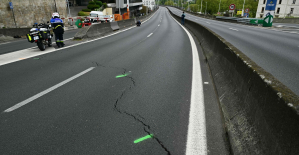 The A13 motorway will finally reopen this Friday, in one direction only
The A13 motorway will finally reopen this Friday, in one direction only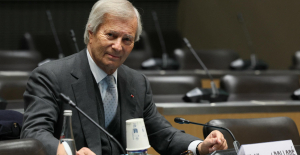 TNT commission of inquiry: tensions between LFI deputies and Macronists before the vote on the report
TNT commission of inquiry: tensions between LFI deputies and Macronists before the vote on the report Apple unveils a new, more efficient iPad range
Apple unveils a new, more efficient iPad range The Gaza War invites itself to the 2024 Pulitzer Prizes
The Gaza War invites itself to the 2024 Pulitzer Prizes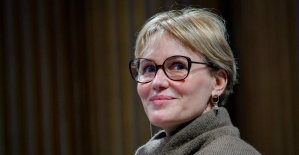 Judith Godrèche presents a short film on sexual violence in Cannes
Judith Godrèche presents a short film on sexual violence in Cannes Kevin Spacey: new trial in sight in London for the American actor, for sexual assault
Kevin Spacey: new trial in sight in London for the American actor, for sexual assault Taylor Swift fans make London pub Black Dog their new place of pilgrimage
Taylor Swift fans make London pub Black Dog their new place of pilgrimage Omoda 7, another Chinese car that could be manufactured in Spain
Omoda 7, another Chinese car that could be manufactured in Spain BYD chooses CA Auto Bank as financial partner in Spain
BYD chooses CA Auto Bank as financial partner in Spain Tesla and Baidu sign key agreement to boost development of autonomous driving
Tesla and Baidu sign key agreement to boost development of autonomous driving Skoda Kodiaq 2024: a 'beast' plug-in hybrid SUV
Skoda Kodiaq 2024: a 'beast' plug-in hybrid SUV The home mortgage firm rises 3.8% in February and the average interest moderates to 3.33%
The home mortgage firm rises 3.8% in February and the average interest moderates to 3.33% This is how housing prices have changed in Spain in the last decade
This is how housing prices have changed in Spain in the last decade The home mortgage firm drops 10% in January and interest soars to 3.46%
The home mortgage firm drops 10% in January and interest soars to 3.46% The jewel of the Rocío de Nagüeles urbanization: a dream villa in Marbella
The jewel of the Rocío de Nagüeles urbanization: a dream villa in Marbella Institutions: senators want to restore the accumulation of mandates and put an end to the automatic presence of ex-presidents on the Constitutional Council
Institutions: senators want to restore the accumulation of mandates and put an end to the automatic presence of ex-presidents on the Constitutional Council Europeans: David Lisnard expresses his “essential and vital” support for François-Xavier Bellamy
Europeans: David Lisnard expresses his “essential and vital” support for François-Xavier Bellamy Facing Jordan Bardella, the popularity match turns to Gabriel Attal’s advantage
Facing Jordan Bardella, the popularity match turns to Gabriel Attal’s advantage Europeans: a senior official on the National Rally list
Europeans: a senior official on the National Rally list These French cities that will boycott the World Cup in Qatar
These French cities that will boycott the World Cup in Qatar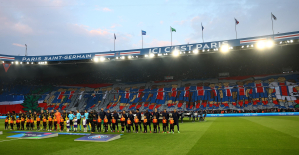 PSG-Dortmund: a gigantic tifo on three stands to welcome the players
PSG-Dortmund: a gigantic tifo on three stands to welcome the players PSG-Dortmund: in video, Donnarumma’s decisive save which saves the Parisians
PSG-Dortmund: in video, Donnarumma’s decisive save which saves the Parisians Pro D2: Biarritz goes before the regulatory authority and reveals partners
Pro D2: Biarritz goes before the regulatory authority and reveals partners Champions League: without madness then cursed, PSG lets its dreams of the final fly away
Champions League: without madness then cursed, PSG lets its dreams of the final fly away






